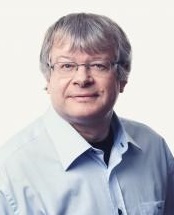Purpose
In the strategic initiative “Sustainable manufacturing business models and value chain design” the goal is to develop new sustainable business models “Sustainable manufacturing business models and value chain design” through a series of industrial pilots. The pilots will test solutions for the entire product lifecycle, and not just a linear approach from production to end of life. For example, worn down products could be reused, so the approach becomes circular.
The design of sustainable products entails a full lifecycle perspective – integrating second use phase, take-back systems, design for disassembly, reparability, reusability, recyclability etc. enabled by agile manufacturing systems.
”Companies have put sustainability and value chain optimization on the agenda because they face many challenges. We all need to consider, how we exploit our resources and the approach has to be circular – when it comes to the way we produce and consume,” Torben Pedersen, leader of workstream 1 and Professor at Copenhagen Business School, says.
We all need to consider, how we exploit our resources and the approach has to be circular – when it comes to the way we produce and consume
Torben Pedersen, leader of the strategic initiative “Sustainable manufacturing business models and value chain design“ and Professor at Copenhagen Business School
Contact:

Required actions
”More research about takeback systems, effective use of products and recyclability is needed. It makes great sense from both a business and community perspective,” Torben Pedersen explains.
Several SME’s in the workstream are seeking to utilize these possibilities: Simon Moos Maskinfabrik A/S wants to develop a concept that transforms sewage to drinking water. Plastix from Lemvig, Denmark, has an ambition to transform worn out fishing nets and rope into high-grade and virgin-like plastic raw materials, that can be reused in industry, and in MADE FAST Plastix want to improve the quality and lifetime of their products.
Parties in the strategic initiative
Companies
BB fiberbeton
Carlsberg
Coloplast
Danfoss
Danish Crown
Dynamica Ropes
Glaspartner
Grundfos
Hydraflex
Letbæk Plast
Novo Nordisk
Plastix
Simon Moss Maskinfabrik
Vetaphone
Aalborg Portland
Aasted
Universities
CBS
DTU
SDU
AAU
RTOs
FORCE Technology
Takeback systems are key
Both SME’s and large companies want to develop take-back systems in MADE FAST. The SME Glaspartner from Esbjerg, Denmark, is striving towards reusing aluminum and glass by developing a solution that provides great incentives for the customers to return worn out products.
Global actors are also keen on implementing effective take-back systems:
“There are eleven Ph.D. research projects and eight innovation projects in this workstream – each tied to different themes. One theme is about sustainable production design where we work with Grundfos to make it possible to separate pump components so individual parts e.g. expensive copper can be reused. Together with DTU we are helping them design this solution,” Torben Pedersen says.
Another global company has the same agenda – only for a different product:
”Novo Nordisk produces 1.5 billion insulin pens a year, and they become toxic waste, when they have been in contact with blood. The medicinal giant wants to develop a system, where these pens are returned, so Novo Nordisk can separate components and reuse materials,” Torben Pedersen says and adds:
”We hope, that we can help companies overcome obstacles and make huge leaps in the right direction. When MADE FAST is finalized, we hope that the Danish business community has become much more sustainable. I am very optimistic – because a lot of effort pulls in the same direction towards world class manufacturing,” the leader of the workstream says.
”The global pandemic accelerates the issue of taking good care of our resources. The foundation of this workstream has only become even more vital because of COVID-19,“ Torben Pedersen says.
Thematic leaders
- Niels Henrik Mortensen professor DTU
- Tim C. McAloone Professor ph.d. DTU
- Niels Gorm Maly Rytter sektionsleder SDU
- Kannan Govindan professor, centerleder, Institut for Teknologi og Innovation SDU
- Brian Vejrum Wæhrens professor AAU.
- Arne Remmen, professor, AAU.
- Daniela Pigosso, Associate Professor, DTU
Read more about sustainable production and MADE FAST
